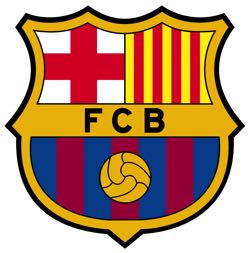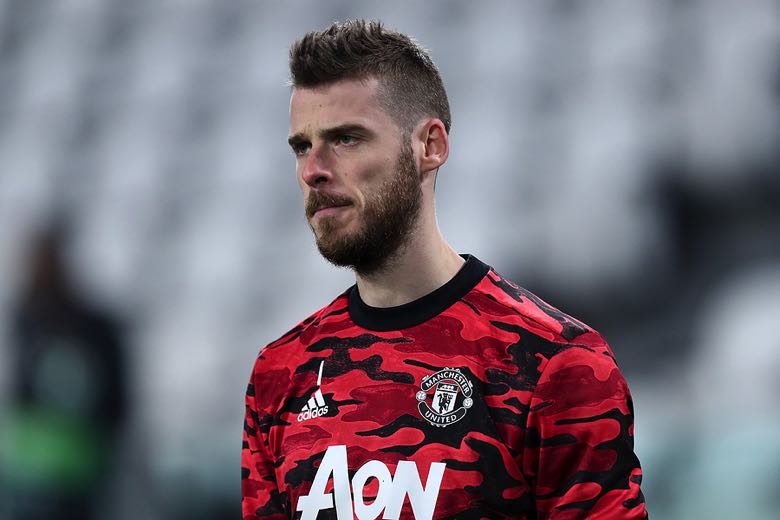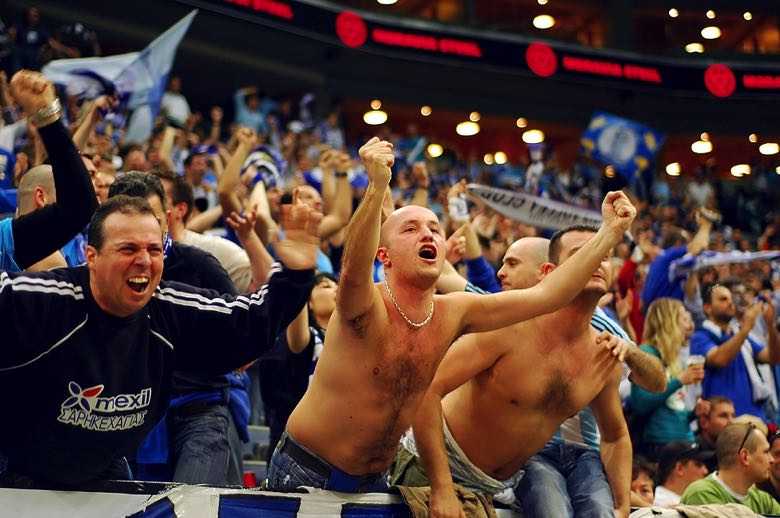Gone are the days where football was a game by the people, for the people. Players would run out each and every week to adoring fans that would do anything to be in the same position as those on the pitch. What made this even more special was the fact that the players felt the same. The privilege of running out each week and playing football was something that was not lost on them. Times have changed though. Football has become so bloated with those that are simply after the money, with the love of the game a rarity at times.
Of course, there are still those that run out every match day as they look to give their all for the badge. Whether they were born in the city that play for or they moved there, they make sure they play like every single game could be their last. However, there are still those that seem to simply turn up for the paycheque. It is a cynical way of looking at football but, much like any job, there are always those that will work only as hard as they need to before clocking off at the earliest possible convenience.
Overtime and working weekends may not be something that translates perfectly into football. However, players that bust a gut to get back to make a last-ditch tackle or strain every last sinew to reach that overhit cross come close enough to understanding it. But what has created this world where football has become about earning as much money as possible?
Who Has Made Football So Expensive?

There are a number of answers to this question. The commercialisation of football has had a big hand in the change. With every match beamed to all corners of the planet, the likes of Sky Sports and BT Sport have the opportunity to earn huge amounts of revenue from people watching football. Whether this is the Champions League or lower league football, people will tune in to watch their team or the big game.
The players must also take some responsibility here too. Many are on ridiculous wages. Some players will earn in a week what most people will take a decade to earn. This has seen player power become huge. Super agents and petulant players have seen wages rise massively, with clubs petrified of losing their best player or missing out on the next big talent. While the players should take some of the blame for this, they should not be lambasted solely for simply being paid well for a job in which there is a lot of money in. However, they are definitely part of the problem.
Most will cite that the owners are the reason why football has become so money-centric. After all, purchasing a football club is usually a lucrative move. Buying players and paying their wages costs a huge amount, and this sees ticket prices going up, club apparel costs more and the price of a burger rises too. While inflation will always play a part in the cost of football rising, should it have risen this quickly? Is this now just the owners looking to squeeze every last penny out of the fans and the club?
Is Fan Ownership the Way Forward?
This is a question that is very difficult to reply to with a straight answer. Clubs have started to turn to the idea of fan ownership as it provides a team that is run by the fans, for the fans. Fan ownership usually provides supporters with the ability to democratically run the club. The aim is usually to create a sustainable side, with its success not tied to how much they can squeeze out of each and every transfer or from the fans that turn up every week.
Indeed, in the case of Chelsea football club, fan ownership could have proved huge to their future. The departure of Roman Abramovich as the owner of the Blues has seen huge interest in who will buy the club. After all, how often does a team like Chelsea, with all of their success and talent, come onto the market? However, due to the situation that Chelsea found itself in with Abramovich, the sale is something that has caused a lot of worry in a footballing sense.
With Chelsea moving away from the hugely successful-Abramovich era, they now find themselves in uncharted territory. Who will be the new owners or the club, and will they continue to push the Blues towards success? Right now, Chelsea’s fans are helpless bystanders. The new owners could pump money into the club as they look to take Chelsea to another level. However, they may just sit on their ownership, happy to neither put money in nor take it out.
In a worst-case scenario, they could also suck the life out of the club. Some owners have been guilty of using football teams as cash cows, only concerned with what they can get, not what they can give. This is the worry for Chelsea’s fans right now. Things would likely have been different in this process if Chelsea were fan-owned in some way. At the very least then, like many other big clubs across the world, those who care most about the team, the fans, should have some say in what the future holds for the club.
Which Are the Biggest Fan Owned Clubs?
With Chelsea’s fans likely wishing they were a fan-owned club, who are the biggest clubs that are owned by their own supporters? The two biggest sides to be fan-owned are Spain’s Barcelona and Germany’s Bayern Munich.
Barcelona
 Some of the best players to have ever kicked a ball have all played for Barcelona, with some of the teams their fans have been treated to simply incredible. The likes of Lionel Messi, Xavi and Andres Iniesta have graced the club in the last two decades or so, but have since moved on. With the recent departure of Messi, the fortunes of the club dipped dramatically, with their hopes of a La Liga title in 2022 over before they ever really started. They were also banished to the Europa League from the Champions League. Clearly, things were not quite right for the side on the field, and this was similar off it too.
Some of the best players to have ever kicked a ball have all played for Barcelona, with some of the teams their fans have been treated to simply incredible. The likes of Lionel Messi, Xavi and Andres Iniesta have graced the club in the last two decades or so, but have since moved on. With the recent departure of Messi, the fortunes of the club dipped dramatically, with their hopes of a La Liga title in 2022 over before they ever really started. They were also banished to the Europa League from the Champions League. Clearly, things were not quite right for the side on the field, and this was similar off it too.
Huge money problems along with issues with their club president have plagued the club in recent years, with Barca reportedly owing around $1.5 billion. Barca are an example of what can go wrong with fan ownership. The Spanish side’s method means that anyone that is hoping to become president of the club must be able to find 10% of the clubs worth as a deposit. An average fan will not have hundreds of millions in their back pocket to fund a bid then.
It means that while the fans involved in the process can vote on who ultimately controls the club, they will always be aware of the fact that there are only so many people wealthy enough to fund a bid for their beloved side. In the end, it may become a case of choosing the lesser of two evils. While Barcelona’s fans technically have the power, they ultimately vote it all away whenever they vote in a new president.
Bayern Munich
 While Barcelona may be a big name in the world of fan ownership, nobody does it better than Bayern Munich. The German behemoth champion the 50+1 rule that the Bundesliga enforces. However, instead of settling for 51% fan ownership, they have seen the percentage rise as high as 75% in the past. This has allowed the fans to focus on achieving results on the pitch, with the players doing the same.
While Barcelona may be a big name in the world of fan ownership, nobody does it better than Bayern Munich. The German behemoth champion the 50+1 rule that the Bundesliga enforces. However, instead of settling for 51% fan ownership, they have seen the percentage rise as high as 75% in the past. This has allowed the fans to focus on achieving results on the pitch, with the players doing the same.
Germany is clearly doing a number of things right in football. Most notable are the affordable season tickets for their fans, and the fact that a club like Bayern is fan-owned. With the ability to stay away from inflated egos, Bayern have won games and trophies with little fuss.
FC United of Manchester
 While not the biggest name on the fan-owned club list, FC United of Manchester are a trendsetter in many ways. Clearly not happy with everything going on behind the scenes at Manchester United due to the Glazer takeover in 2005, many fans broke away from their beloved United to create their own club. While they had to start out in the 10th tier of English football, FC United of Manchester currently plays in the Northern Premier League Premier Division.
While not the biggest name on the fan-owned club list, FC United of Manchester are a trendsetter in many ways. Clearly not happy with everything going on behind the scenes at Manchester United due to the Glazer takeover in 2005, many fans broke away from their beloved United to create their own club. While they had to start out in the 10th tier of English football, FC United of Manchester currently plays in the Northern Premier League Premier Division.
While the side began as some aggrieved fans that had enough of their owners, it has transformed itself into a real team. With a stadium of their own and a women’s team, FC United of Manchester have been able to create and maintain a club that is run by the fans, for the fans.
Which Are the Worst Run Football Clubs?

While this will depend on what you believe makes a bad owner and your own allegiances, there is one club that ranks highly with most people when it comes to poorly run clubs, and that is Manchester United. The proposed Super League once again put big clubs in the spotlight for all the wrong reasons. Greed fuelled the move from all involved as the biggest clubs in Europe edged towards a breakaway European Super League that would have left the other sides in their leagues and across Europe floundering.
Manchester United were one such side that were in talks to join this Super League. As soon as this was announced, United’s fans would not have needed to have seen the list of clubs potentially involved. They knew that solely because of their owners, the Glazers, if greed was involved, they would be a part of it.
In recent years the protestation towards the Glazers’ ownership of United had simmered down simply because they are so far away. However, this reignited the flames for many fans. Indeed, it was reported in 2020 that the Glazers ownership has apparently cost United £1.5 billion in debt, interest and outgoings.
Ultimately, United have fallen into debt for the first time since 1931. The Glazers borrowed £520 to buy the club back in 2005, and United have been paying this off ever since. With trophies drying up, managers coming and going and players unable to prove why they should command such massive wages, the club’s fans have been angrily protesting again. They see the major problem in their club, and they feel that it starts at the top.
Benefits of Fan Owned Clubs

There are many benefits to fans owning their club. After all, nobody cares more about their club than the fans that turn up week in, week out, in the rain and the cold, in the sun and the heat, to watch their side. Commitment is tested when they are forced to watch their teams play poorly, when managers are sacked, when players underperform or when a side is relegated, but football fans would not have it any other way.
After all, the plummeting lows are what makes the highs so euphoric. The fans that have seen their team on the cusp of relegation will be left with an even sweeter taste in their mouths when they beat their derby rivals or win a cup. Fan ownership also means that situations like the one that has rumbled on at Manchester United are less likely to happen. Of course, much like in the case of Barcelona, there are only so many super-rich benefactors that can afford to buy a club, meaning that at some point the fans will have to relent.
However, if United’s fans could have had their time again back in the early 2000’s and they were the majority owners in a Bundesliga style 50+1 setup, then few would have wanted the Glazers to become owners. The problem has and likely always will be that the majority of football fans will not have millions of pounds lying around to buy a club. Those that can afford to put down a bid of £1 billion, £100 million or even £10 million is a very exclusive club.
Is There a Middle Ground?
The ideal middle ground when it comes to fan ownership is difficult to quantify. Fans can own the club as they do in Barcelona, but they will eventually have to make a choice of who the president might be. Again, in the case of Barcelona, it became the lesser of two evils, but the club has still found itself in huge financial turmoil, while the club itself has appeared rudderless at times.
For a team like FC United of Manchester, fan ownership has kept the club a community one. This means that the side is run for the fans. However, will they ever get anywhere near the likes of United or City without huge funding? The apparent ideal way forward for a club is to be bought by a billionaire that is already a big fan of the team. This simply means that they will bring huge backing for transfers and player wages, while they will also want the best for the club as a fan.
An owner that buys a club will want the best for the club as success on the pitch usually transfers to success off. However, there is a big difference between this and a fan that has supported the team for as long as they can remember. Unfortunately, a super-rich fan buying the club very rarely happens, with most clubs bought by business people that only have their eyes on one thing.
Ultimately, the world of football club ownership is a hugely convoluted area. Having a mega-rich owner has its perks and detracting factors much in the same way fan ownership does. While fans having a bigger say in how their team is run is definitely a good thing, it is unlikely that you will see all of the major football teams across Europe switching to fan ownership any time soon. For as long as there is huge revenue to be made in football, those at the top will look to exploit their teams.

